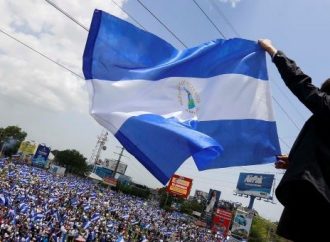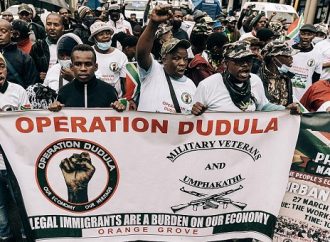Nigeria Labour Congress (NLC) is set to continue with its planned nationwide protest on Thursday in spite of the announcement by the Federal Government that it would no longer remove the fuel subsidy for now. In regards to the mass rally, the NLC has written to the 36 state governors to demand the removal of
Nigeria Labour Congress (NLC) is set to continue with its planned nationwide protest on Thursday in spite of the announcement by the Federal Government that it would no longer remove the fuel subsidy for now.
In regards to the mass rally, the NLC has written to the 36 state governors to demand the removal of the subsidy scheduled for June.
NLC protest fuel subsidy.
The NLC has also blamed the government for the unending trudge in the pump price of petrol and other refined petroleum product, stating that the government has failed to govern the country effectively.
Zainab Ahmed, Minister of Finance, Budget and National Planning, and the Minister of State Petroleum Resources, Timipre Sylva at the National Assembly on Monday had said that the Federal Government had suspended the plan to remove the subsidy.
The Assistant General Secretary, NLC has also confirmed that the rally will ahead. He said, “We are continuing with preparation for the protests.
The letter written to the governors by the NLC President, Ayubu Wabba and General Secretary, Emmanuel Ugboaja, admonished the government for its failure to effectively govern the nation’s four oil refineries and inability to build new ones.
“It is tragic and shameful that Nigeria is about the only OPEC (Organization of Petroleum Producing Countries) country that cannot refine her crude oil.”
The letter titled, “Petition by Nigerian workers against the proposed increase in the price of Premium Motor Spirit, stated, “The Federal Government should announce the withdrawal of its plans to increase the pump price of petrol. There is no gainsaying the fact that the perennial increase of the pump price of petrol and other refined petroleum products by the government is actually a transfer of government failure and inability to effectively govern to the poor masses of our country”.
Central to this is the failure of the government to manage Nigeria’s four oil refineries and the inability to build new ones. It is tragic and shameful that Nigeria is about the only OPEC country that cannot refine her own crude oil.”
Going further, the NLC has written to the Federal Capital Territory Police Command on its mass rally holding on Thursday. The FCT police command, DSP Joesphine Adeh, has explained that the congress does not need a police permit for its rally.
She said, “They have written to inform us about the protests so our men would be on ground to provide protection for them. They don’t need a permit to hold their protests but their letter was simply to inform us about the protests.” She added.
Nigerians have been suffering from high fuel prices in recent times. The knock-on effect is making most Nigerians poorer in a scenario of ever-increasing transport fares and food prices. Poor Nigerians only hope the government will look into the myriads of the country’s problems and come up with a lasting solution.
“Nigeria is the largest oil and gas producer in Africa. Crude oil from the Niger delta basin comes in two types: light, and comparatively heavy – the lighter around 36 gravity and the heavier, 20–25 gravity. Both types are paraffinic and low in sulfur. Nigeria’s economy and budget have been largely supported by income and revenues generated from the petroleum industry since 1960.
Statistics as of February 2021 show that Nigeria’s oil sector contributes to about 9% of the entire country’s GDP. Nigeria as the largest oil and gas producer in Africa is a major exporter of Crude oil and petroleum products to the United States of America.
In 2010, Nigeria exported over one million barrels per day to the United States of America representing 9% of the U.S total crude oil and petroleum products imports and over 40% of Nigeria exports.
The need for holistic reforms in the Petroleum Industry, ease of doing business, and encouragement of local content in the industry birthed the Petroleum Industry Bill by the Goodluck Jonathan administration on July 18th, 2008”. This section is culled from WIKIPEDIA. https://en.wikipedia.org/wiki/Petroleum_industry_in_Nigeria


















Leave a Comment
Your email address will not be published. Required fields are marked with *